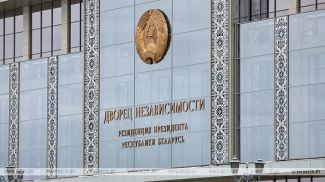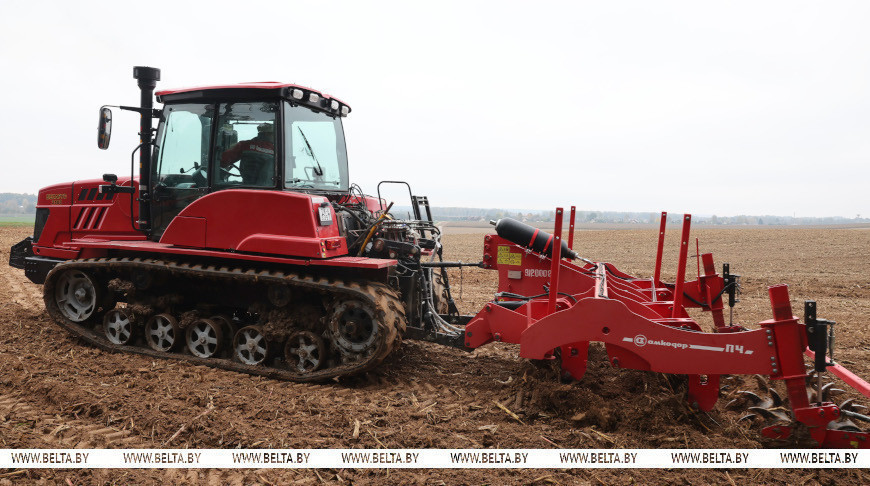
SHKLOV DISTRICT, 11 October (BelTA) – Belarusian President Aleksandr Lukashenko examined the results of the experiment on no-tillage practices as a solution to the problem of spring waterlogging in the president’s field in Shklov District. This makes it possible to increase the planted areas and eventually improve harvest by 10%, BelTA has learned.
"This topic is very important for Gomel Oblast and Mogilev Oblast. In spring, especially when the planting season ends, you fly over the country and you see waterlogged spots all around. Crops do not sprout in such places. This problem is common for all Belarus. Such are our soils, such is our climate. This is not Ukraine, or Russia’s Kuban. Sometimes we lose up to about 10% of the harvest," the president said. “We do not plant them with anything. Though we agreed otherwise this year. I suggested we plant something later on in the spring. Now I fly over, and I see that the things today are as they were in the spring. Farms rarely work on this problem."
Aleksandr Lukashenko explained that the soil is tilled 25-30cm deep every year. “We do not go deeper. A soil pan is formed and moisture is not absorbed. Scientists suggest tilling below 25-30cm. This will make the water go away. A whole bunch of machinery has been invented for this purpose. They have been tested for several years. You say the machinery proves efficient. I will not believe it, until I see it with my own eyes (as any farmer will agree with me),” the Belarusian leader said.
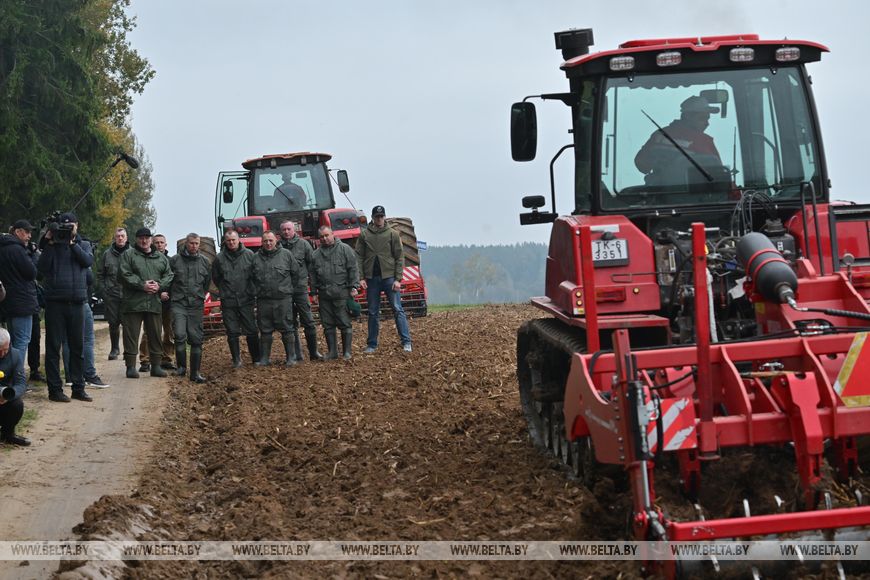
A decision was thus taken to test the relevant machinery on the presidential field.
Candidate of Technical Sciences Yakov Yarotsky told the president about everything in detail. According to him, earlier soil was tilled 18-20cm deep, and that was quite enough. After all, the equipment was low-powered, not heavy. "Recently heavy equipment has been in use. What we got is deformed accumulative soil compression. The plow pan used to be 5-6cm. Today it reaches 50 cm," the scientist stated.
In the spring such places turn into waterlogged spots and in the summer they overgrow with weeds.
"And then weeds take over the field," the head of state agreed.
Yakov Yarotsky continued: "True. Then such places fall out of use and produce nothing."
According to the scientist, farmers around the world have started using such a technique as decompression. "Unfortunately, this technology has not been used widely in our country," he said.
Yakov Yarotsky voiced a number of practical recommendations on how to proceed, noting that it is not only a matter of eliminating waterlogged areas: "In places with moist soil, after heavy rain, the moisture reaches the compacted layer and goes down. Productive moisture accumulates at a depth of 1.5-1.8 meters. The one that can rise up. But even if it is there, the plow pan does not allow it to rise to the root system."
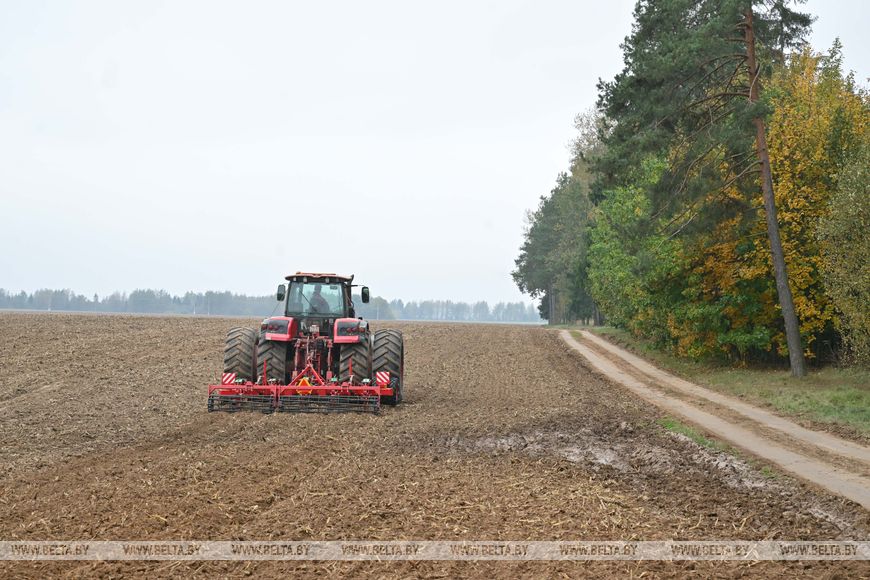
Applying various fertilizers and micronutrients, farmers expect to get a yield of, for example, 60 centners per hectare, but in fact they get half as much.
“This is a very important issue and I am very grateful to you for the efforts you invest in dealing with it. I have been working on the matter all my life and I know it very well,” the scientist said addressing the president. “Today if we want to get high yields in such crops as beets, potatoes, corn, rapeseed, we need to get rid of the plow pan”.
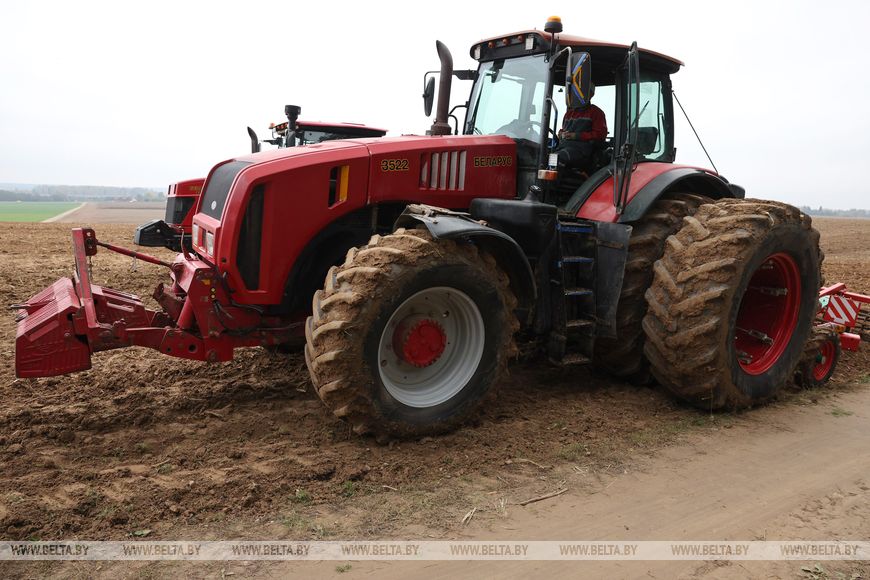
The method will contribute significantly to higher returns from low-lying, low-fertility areas. All necessary equipment is available. Before using this machinery in the field, however, an agronomist should walk through it with a special device that will help detect the location and depth of the plow pan.
“Do you as a scientist think this is the right way to do?” the head of state asked.
“Yes, it is,” Yakov Yarotsky replied with confidence.
In this regard, Aleksandr Lukashenko said that sometimes such things are not given due attention because of the desire to quickly report on the work done. “You know, the practice of planting as fast as possible does not work well. Especially now. Competition is high. Economy is number one priority,” the Belarusian leader said.




